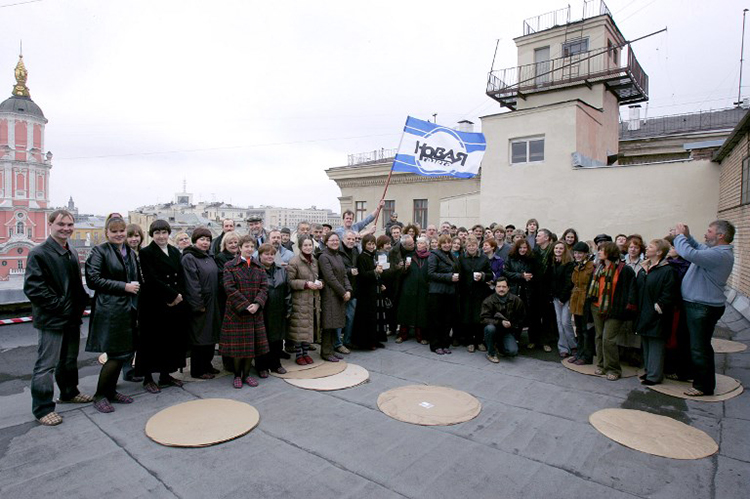New York, August 7, 2017–Russian authorities should credibly investigate allegations that bailiffs tortured Uzbek journalist Khudoberdi Nurmatov, and should not deport him to Uzbekistan, the Committee to Protect Journalists said today. A court in Moscow is scheduled to hear the journalist’s appeal of the order to deport him tomorrow, according to media reports.
Moscow police arrested Nurmatov, a contributor to the independent Russian daily newspaper Novaya Gazeta better known by his pen name, Ali Feruz, near Novaya Gazeta‘s office in Moscow on August 1, on immigration charges, according to media reports. The same day, the Basmanny District Court of Moscow ruled that the journalist had violated Russian immigration laws and ordered his deportation, whereupon the journalist tried to commit suicide in the courtroom by grabbing a pen from his lawyer and trying to gouge his wrists, according to Novaya Gazeta and media reports.
The newspaper reported that bailiffs beat, insulted, and shocked Nurmatov while bringing him to a detention center for foreign nationals in a Moscow suburb. Novaya Gazeta Editor-in-Chief Dmitry Muratov, who visited Nurmatov in the detention center on August 5, reported that the journalist had bruises on his back, was unable to eat for three days, and has suffered from hypertension since the beating. The Russian Federal Bailiffs Service did not respond to CPJ’s phone calls requesting comment.
“Russian authorities should independently and credibly investigate the serious allegations that Kudoberdi Nurmatov was tortured in custody, and should refrain from deporting him to Uzbekistan, where he faces imminent risk of further torture,” CPJ Europe and Central Asia Program Coordinator Nina Ognianova said. “Russia should free Nurmatov without delay and allow him to continue living in Russia and to work without interference.”
Nurmatov, 30, fled Uzbekistan in 2008, after Uzbek security services allegedly tried to force him to work as an informant by torturing him and threatening to harm his family, eventually arriving in Russia by way of Kyrgyzstan and Kazakhstan in 2011, according to media reports.
He began contributing to Novaya Gazeta in 2014, when he reported the abduction of an Uzbek migrant from downtown Moscow.
In 2015 Nurmatov first unsuccessfully applied for refugee status in Russia–where his mother and siblings, all Russian citizens, live–on the grounds that he risked torture in Uzbekistan. Over the following years he unsuccessfully applied for residency through various routes. His appeal of a March 2017 rejection of his application for political asylum was still pending at the time of his arrest, Novaya Gazeta reported.
Human Rights Watch and Amnesty International say the journalist is at risk of torture if Russia deports him to Uzbekistan. The Uzbek National Security Service did not respond to CPJ’s phone calls requesting comment.
Nurmatov has regularly contributed to Novaya Gazeta since 2016, reporting on such sensitive subjects as the plight of Central Asian migrant workers in Russia and the December 2016 presidential election in Uzbekistan.
On August 4, according to human rights groups and media reports, the European Court of Human Rights issued a preliminary injunction ordering Russia not to deport the journalist until the court reviews his case.
